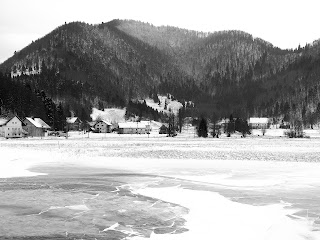24 January 2025
Wednesday was the Day of Prayer for the Protection of Unborn Children. At 1:00 PM today the 52nd annual March for Life will step off in D.C. Fifty-two years of prayerful protest against abortion and, a more recent addition, the intentional killing of the ill elderly. I taught at Georgetown University School of Medicine for ten years. Georgetown is the location for the annual Cardinal O’Connor Conference on Life. That will happen tomorrow January 25. All of these events were, and remain, necessary responses to the U.S. Supreme Court's disastrous Roe vs. Wade decision of January 22, 1973 and society’s enthusiastic embrace of killing the most vulnerable at both ends of the age spectrum.
Though now repealed with the lawmaking returned to the states, Roe v. Wade sent American society down a slippery slope of killing the unplanned, the imperfect, the undesirable, and the inconveniently sick and elderly. While initially Roe vs. Wade set a three-month limit during which abortion was considered legal, things have changed.
Late-term abortion, i.e. after twenty weeks gestation and for some, up to the point of viability, has been approved in a number of states with legislation pending in others. A column in the Washington Post from February 1, 2019 contained the following startling quote. "This week in Virginia, Delegate Kathy Tran (D-Fairfax) admitted that, yes, her bill would allow a doctor to perform an abortion after the mother had gone into labor—a position that Democratic Gov. Ralph Northam, a pediatric neurologist by training bizarrely (and ineptly) defended in a radio interview." Massachusetts has made multiple attempts to approve what is euphemistically called "assisted dying," so far to no avail. A bill will come up in New York shortly with a similar intent. When did old age, handicap, or terminal illness, become capital offenses demanding a prescribed, planned, and intentional death?
In his encyclical Evangelium Vitae, St. John Paul II condemned "therapeutic interventions--which accept life only under certain conditions and reject it when it is affected by any limitation, handicap, or illness." As if to prove John Paul's condemnation, Iceland, through prenatal testing and post-test abortion, has almost eliminated Down Syndrome or Trisomy 21 from its population.
John Paul pointed out in his encyclical: "A danger today is the tendency to disguise certain crimes against life in its early or final stages by using innocuous medical terms
which distract attention from the fact that what is involved is the right to life of an actual human person." Killing the sick and sick elderly is considerably more accurate than physician prescribed death. Women's Health is a clever term to disguise abortion.
While St. John Paul II picked up on the manipulation of language he seems to have missed the severe editing of long standing codes of conductin the world of medicine.
Sadly, medical schools shoulder much of the blame.
In ancient times Hippocratic physicians, pronounced and lived according to the Oath Attributed to Hippocrates. It was not universally administered nor did all physicians abide by its precepts, thus the designation Hippocratic physicians separated those who took the oath from non-Hippocratic physicians, those who didn’t. The bowdlerized “oath” administered these days is a trite med school graduation exercise performed so that mommy can dab at her eyes and daddy can bust his buttons. The modern versions are unrecognizable when compared to the original. The promises to live ethically and morally, and the promise to revere and respect the one who taught the young physician the art of medicine, have all been deleted. A new physician no longer swears: "Into whatsoever houses I enter, . . .I will abstain from all intentional wrong-doing and harm, especially from abusing the bodies of man or woman," Today's young doctors do not say: "I will use treatment to help the sick . . . but never with a view to injury and wrong-doing. Neither will I administer a poison to anybody when asked to do so, nor will I suggest such a course . . . . Similarly I will not give to a woman a pessary to cause abortion. But I will keep pure and holy both my life and my art."
The Hippocratic oath is thought to have been composed between the third and fifth centuries B.C. suggesting that the sanctity of vulnerable life was more respected by pagans than it is by today's shrill proponents and their fellow travelers. Unfortunately, there will be a 53rd Annual March for Life and probably a 54th and 55th as well. The need for witness will be even greater over the coming years as vulnerable and defenseless human life remains under assault in novel forms such as puberty blockers.
We pray in thanksgiving for those who will march in D.C. a bit later today, particularly the legions of young people who traveled from all over the country. We pray for the victims of unnatural executions, the Holy Innocents of today. We pray for the collateral damage to families. The cost is much higher than anyone realizes. We pray for the conversion of heart of abortionists and those who would execute the sick elderly. We pray for their collaborators who administer the anesthesia, prep the patient, and assure the patient that she is doing the absolutely right thing or that grandma’s family is acting
in her best
interest.
Requiem aeternam
dona eis, Domine,
et lux perpetua luceat eis.
Requiescant in pace.
_____________________________________________
Meant to post this on Friday but one thing led to another and I neglected to do so. However, the topic is important.
Fr. Jack, SJ, MD










.jpg)












